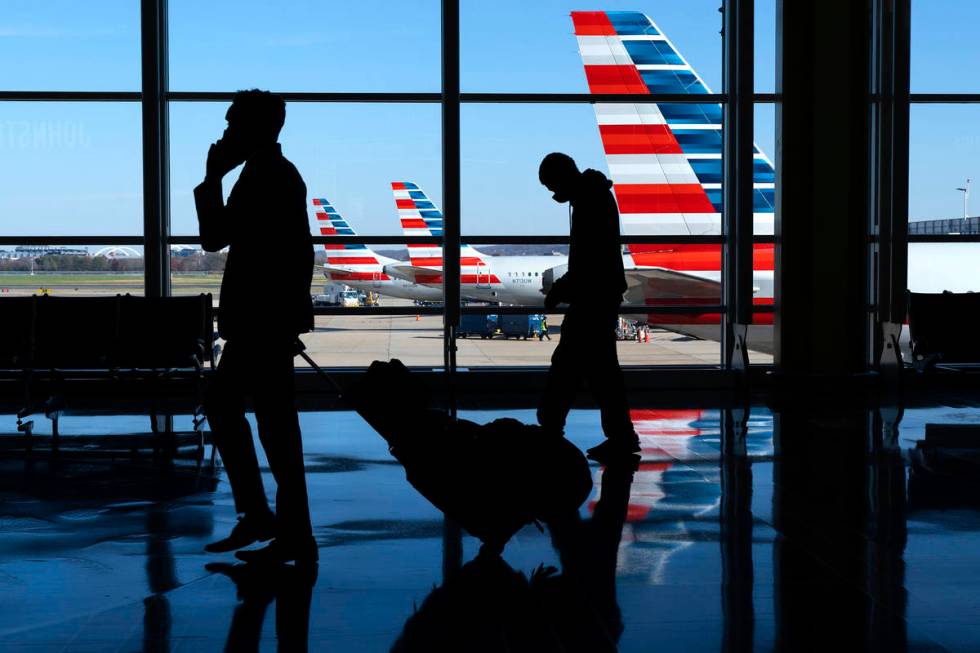Travelers holding off on spring break plans despite fewer COVID cases

U.S. travelers are taking a break from spring break this year.
Just 1 in 8 Americans plans to travel for spring break this year, according to a recent report from the U.S. Travel Association. CEO and President Roger Dow said the findings suggest that many are holding off travel plans until there are more shots in arms.
“Travel is all about confidence. It’s all about what people believe. And (the vaccine) is just one more step in getting people to believe it’s safe to travel,” Dow said during a Thursday news conference.
Tourism springing back
A survey from Destination Analysts found 12 percent of more than 1,200 surveyed American travelers plan to take a spring break trip this year. The polling took place between Feb. 26 and 28 and had fallen from 16 percent the week prior.
“It’s down from (the previous) week, when we were thinking everything was starting to go in the right direction,” Dow said. “That’s challenging news. … Spring break always signals the time when travel is about to spring back.”
Dow hypothesized that the drop comes from recent coverage around the pandemic.
“The talk every day about the pandemic has just had people looking at it,” Dow said.
Purdue University professor Jonathan Day said modified school schedules this year could play a role in fewer spring break travelers. His university is among many that doesn’t have an allotted spring break this semester.
“I think part of the lag is partly about organizations that have committed to schedules and partly people building up confidence to make the first trip,” said the associate professor of hospitality and tourism management.
Day added that many travelers are probably waiting for a vaccine before making travel plans. More than 21 percent of the U.S. adult population had received at least one shot as of Thursday, according to data from the Centers for Disease Control and Prevention.
“The light at the end of the tunnel is getting brighter,” he said. “I don’t think it will be long till folks are out in the sunshine.”
Alan Feldman of UNLV said spring break trips — popular among college students — will probably have little effect on the Las Vegas market, which tends to attract those 21 and over.
“The city really hasn’t tried to market itself as a spring break destination as the beaches in Florida and Texas have,” said Feldman, a distinguished fellow at UNLV’s International Gaming Institute. “I don’t think it’s going to have any significant impact on Las Vegas. Our capacity is going to be taken up by other adult travelers.”
Long-term growth
Among those surveyed who do plan to travel for spring break, 73 percent said they’re doing so to relax and escape stress. Seventy-one percent said they want to spend time with family, and another 71 percent said they’re looking to escape boredom.
Dow said the travel association wants to remind those who are traveling to remain vigilant. He emphasized the importance of wearing masks, a mandate that is being lifted in some states.
“We really can’t recover travel until we get this pandemic under control,” Dow said. “Masks continue to be very important.”
While spring break may see low travel volumes, Feldman expects tourism will ramp up in the coming months as vaccines continue to roll out.
“In the short term, when you’re talking about who is going to travel in the next 30 days, there’s still reluctance to do so,” Feldman said. “Thinking about the later part of the year, fourth quarter and beyond, there’s clearly interest. … I don’t think there’s any reason to be anything but bullish in the later part of the year.”
Respondents for the Destination Analysts survey have a more positive long-term view on travel, with 55 percent saying they plan to take at least one leisure trip in the next three months. More than 84 percent have tentative plans for a trip in 2021, with peak travel months between June and October.
Dow emphasized that further policy action will be needed to help the travel industry recover fully, including continued relief through the Paycheck Protection Program and tax incentives that help travel-dependent businesses.
“Even though it’s been an incredibly disastrous 12 months for travel. … I’m very optimistic about the future,” Dow said. “We’re seeing emerging travel sentiment. … That’s a major change from six months ago.”
Contact Bailey Schulz at bschulz@reviewjournal.com. Follow @bailey_schulz on Twitter.